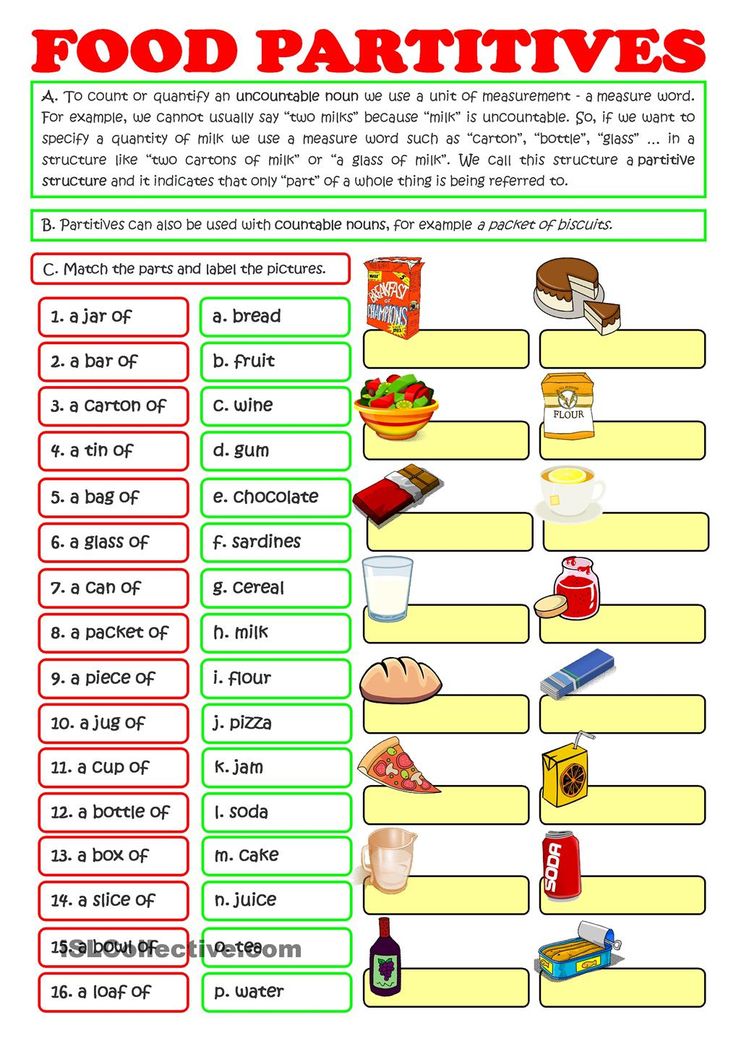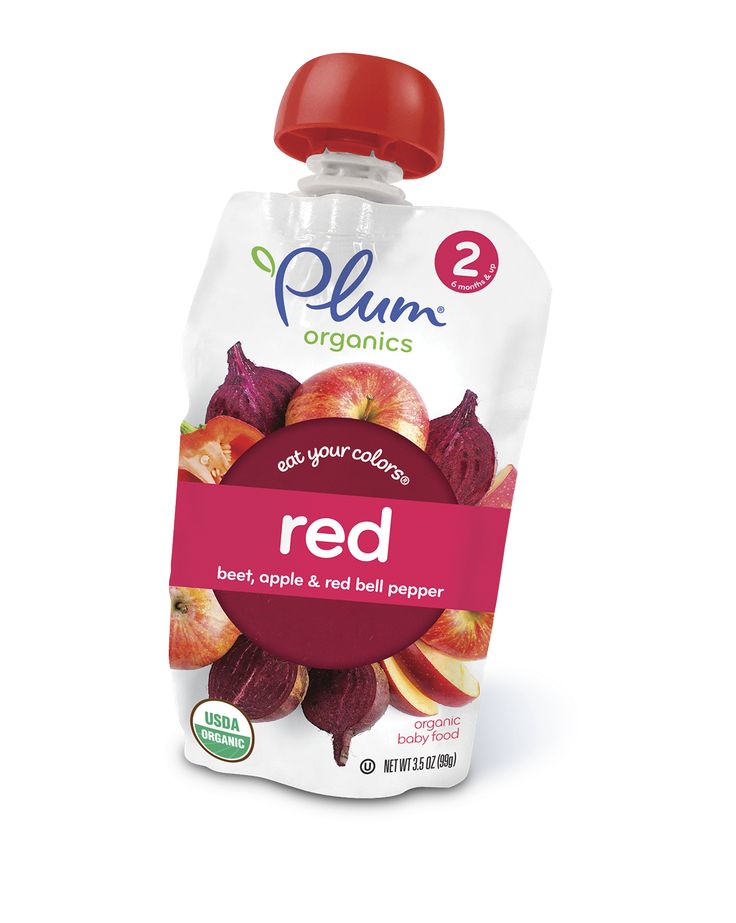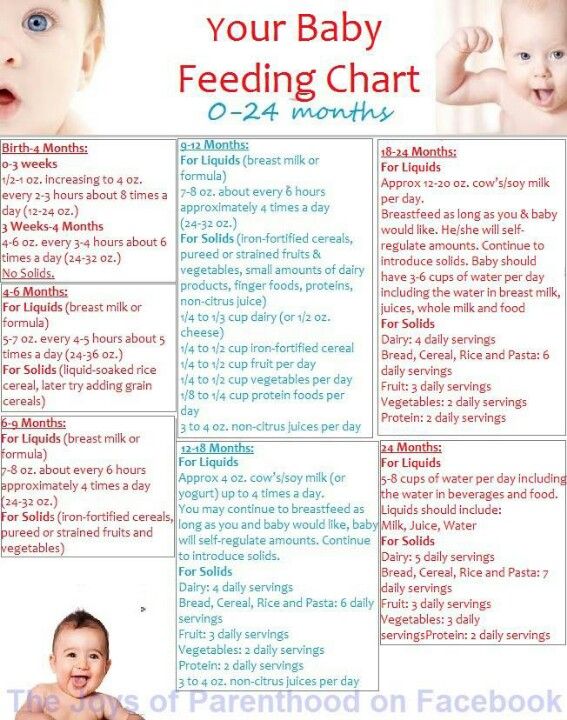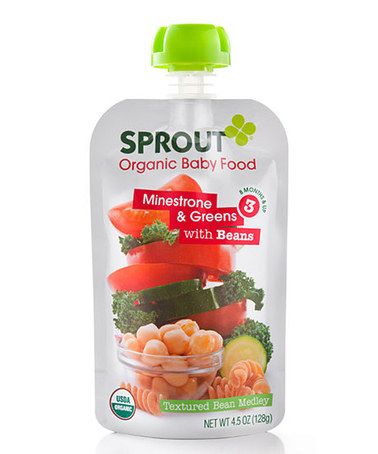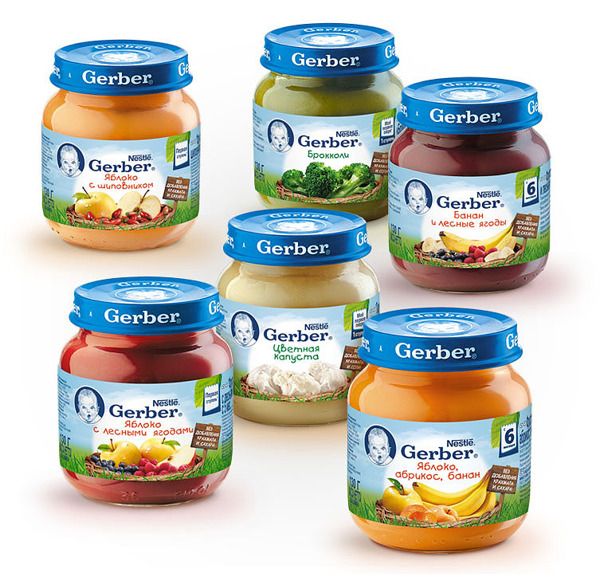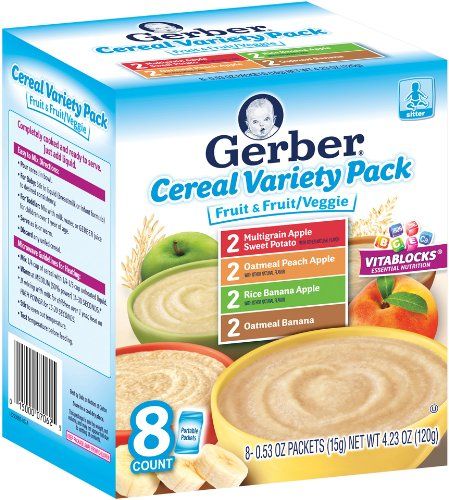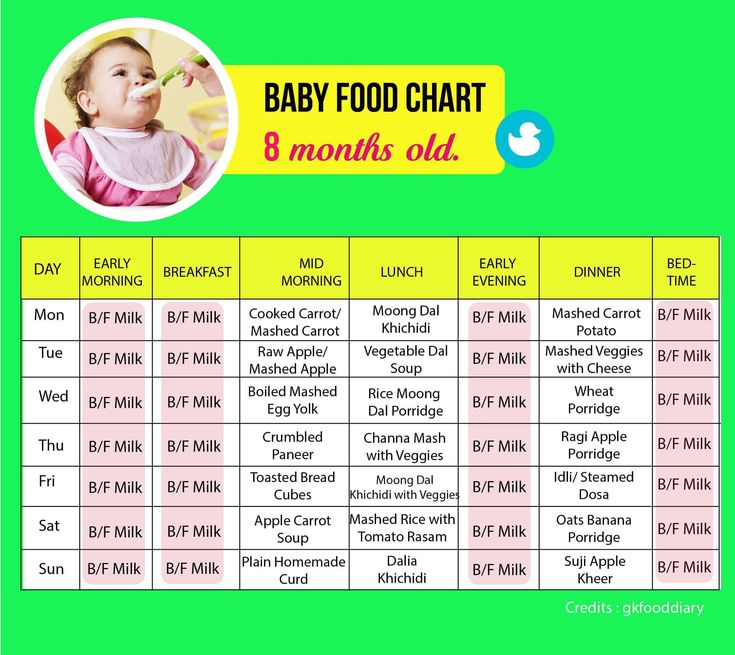Baby and me whole food prenatal
Baby & Me 2™ Prenatal Multi
23 key nutrients plus real food to support optimal nutrition for mom + baby.† Dual Brain Support with Folate & Choline.† Dr. formulated by an expert in women's health and also includes Iron, D3 & B12 and real food like oranges and broccoli.
List Price: $36.99
Your Price: $29.99
Sale $29.99
You save $7.00 (18%)
Frequency:
One-Time Purchase $29.99
Subscribe & Save 15% 3 Pack $25.49
Additional 15% off. Shipped automatically based on your schedule. Adjust, pause, or cancel anytime using your MegaFood account.
Delivery every 30 DaysDelivery every 45 DaysDelivery every 60 DaysDelivery every 90 DaysDelivery every 120 DaysDelivery every 180 Days
Notify Me When Available
2-3 Day Ground Shipping
Free Shipping Over $29
Money Back Guarantee
Earn points on this purchase! Learn More
- Supports optimal nutrition before & during pregnancy† with key nutrients like iron & vitamin B12 paired with real food like organic oranges & broccoli
- Includes choline to support fetal health†
- Also includes methylated folate, the active form of folic acid, to support fetal health†
- Pair your multi with Prenatal DHA & Choline for baby's healthy brain development†; once baby arrives, switch to our Postnatal Multivitamin for the added nourishment you need while breastfeeding†
- Take anytime of day, even on an empty stomach
You’ve got a lot growin’ on during your pregnancy. Your nutrition? Let us help with our Doctor-formulated prenatal to help nourish the two of you.†
- 2 tablets daily with a beverage.
- May be taken anytime throughout the day, even on an empty stomach.
- Key nutrients like Vitamin B12 & iron to support optimal nutrition before & during pregnancy†
- Choline & methylated folate support fetal health†
Supplement Facts
Suggested use:
- 2 tablets daily with a beverage.
- May be taken anytime throughout the day, even on an empty stomach.
Serving Size 2 Tablets
Servings Per Container 30
AMOUNT PER SERVING
% DV For Pregnant Women
Vitamin A (as beta carotene with carrot)† 750 mcg RAE
58%
Vitamin C (as ascorbic acid with organic orange)† 100 mg
83%
Vitamin D3 (as fermented cholecalciferol) 15 mcg
100%
Vitamin E (as d-alpha tocopherol from sunflower seed oil) 20 mg
105%
Vitamin K (as phytonadione with cabbage)† 60 mcg
67%
Thiamine (as thiamine hydrochloride with S.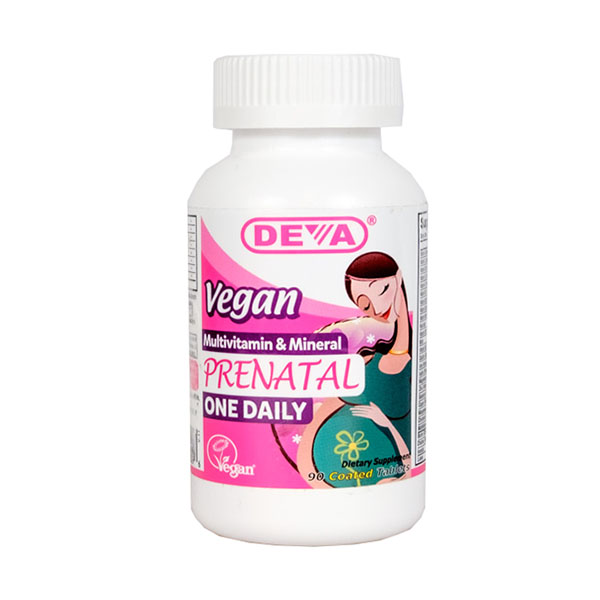 cerevisiae)† 1.5 mg
cerevisiae)† 1.5 mg
107%
Riboflavin (as riboflavin 5'-phosphate sodium with organic brown rice)† 1.7 mg
106%
Niacin (as niacinamide with S. cerevisiae)† 20 mg NE
111%
Vitamin B6 (as pyridoxal-5-phosphate with organic brown rice)† 8 mg
400%
Folate (as L-5-methyltetrahydrofolate with broccoli)† 1020 mcg DFE (600 mcg L-5-MTHF)
170%
Vitamin B12 (as methylcobalamin with S. cerevisae)† 8 mcg
286%
Biotin (as biotin with organic brown rice)† 300 mcg
857%
Pantothenic Acid (as d-calcium pantothenate with organic brown rice)† 10 mg
143%
Choline (as choline bitartrate) 300 mg
55%
Iron (as fermented iron bisglycinate) 18 mg
67%
Iodine (as fermented iodine glycinate) 150 mcg
52%
Zinc (as zinc bisglycinate) 15 mg
115%
Selenium (as fermented selenium glycinate) 50 mcg
71%
Copper (as fermented copper bisglysinate) 0.2 mg
15%
Manganese (as fermented manganese bisglycinate) 1 mg
38%
GTF Chromium (as fermented chromium glysinate, nicotinate, glutamate) 50 mcg
111%
Molybdenum (as fermented molybdenum biglycinate) 10 mcg
20%
Vitamin K2 (as menaquinone-7 with cabbage)† 30 mcg
**
** %Daily Value (DV) not established
Other Ingredients: Microcrystalline cellulose, ferment media (rice protein, organic brown rice, autolyzed yeast extract, yeast [inactive]), organic brown rice, silicon dioxide, rice protein, stearic acid, autolyzed yeast extract, hypromellose.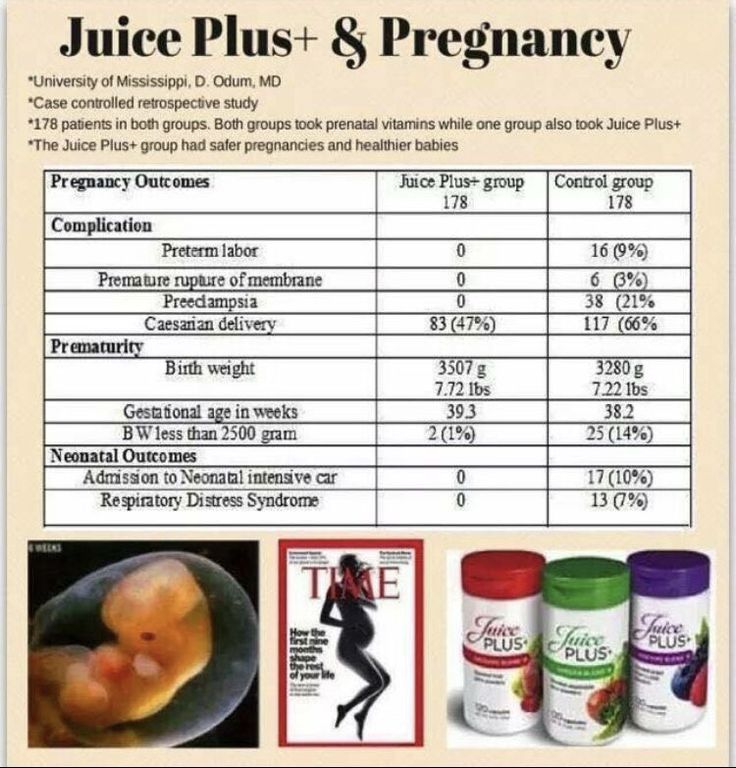
Warning: Accidental overdose of iron-containing products is a leading cause of fatal poisoning in children under six. Keep this product out of reach of children. In case of accidental overdose, call a doctor or poison control center immediately. Store tightly sealed in a cool place and avoid exposure to moisture. Once open, consume within three months. Tablet color may naturally change over time. Biotin is an important nutrient, especially during pregnancy. Biotin may interfere with lab tests. If you are taking medication or planning to undergo lab testing, consult with your doctor before use.
Made with high standards for a head start
You’ve got a lot growin’ on. Let us help with our Doctor-formulated prenatal & postnatal products to nourish the two of you.†
- Supplements to support optimal nutrition at every stage†
- Certifications for safety and purity
- Can be taken any time of day, even on an empty stomach
Quality Supplements Made For Two
Added nourishment before and during pregnancy †
- Doctor-formulated with key nutrients like iron, folate & choline paired and real food like organic oranges & broccoli
- Certifications for safety & purity like Non-GMO Project Verified & tested for 125 pesticides & herbicides
- Can be taken any time of day, even on an empty stomach
Frequently Asked Questions
To support optimal health during pregnancy,* women should consider incorporating the following vitamins and nutrients into their daily routine: Iron, Vitamin B12, Vitamin B6, Vitamin D3, Vitamin C, Choline, Iodine, Folate (the active form of folic acid), and more.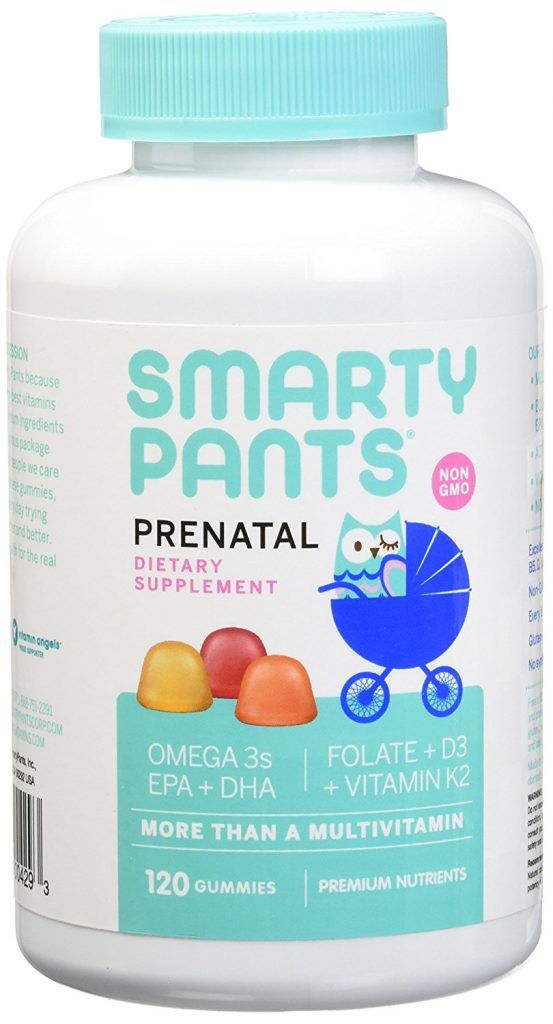
Here’s a slightly deeper dive into what makes some of these vitamins and nutrients so important:
Vitamin D supports immune, bone and muscle health*
Vitamin C supports a healthy immune system*
Folate & Cholinesupports fetal health*
Supplementing with a multivitamin is an easy, everyday way to address nutritional gaps in your diet and support optimal health.*
A prenatal multi is formulated to address a woman’s unique nutritional needs during pregnancy. For example, pregnant women need folate. Baby & Me 2TM Prenatal Multi is crafted with high-quality ingredients that offer essential minerals, vitamins and real food to support the nutritional needs of pregnant women.*
We make it easy! This premium prenatal multi can be taken anytime of day, even on an empty stomach.
Pregnancy adds many new demands on your body and can result in low levels of iron and vitamin B12. We recommend consulting with your healthcare practitioner for any questions you may have.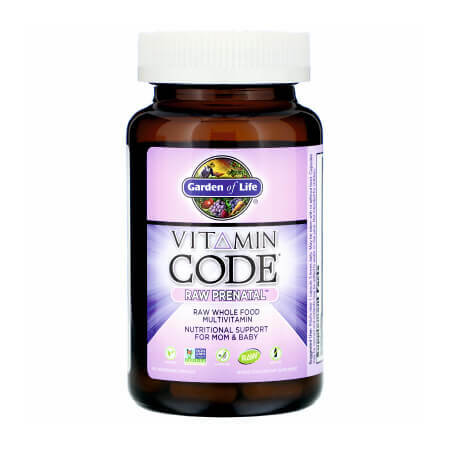
We recommend talking with your doctor before taking an iron supplement and having your iron levels monitored during the time you’re taking an iron supplement.
Pair your Prenatal Multi with Baby & Me 2 Prenatal DHA & Choline to support baby’s healthy brain development* and try our Morning Sickness Nausea Relief* Soft Chews to help address nausea related to morning sickness anytime, anywhere.* Once baby arrives, switch to our Postnatal Multi for the added nourishment you need while breastfeeding.*
We also have supplements to support a range of health needs, like Immune Health, Sleep & Stress, Digestion and more. Check out our family of premium, quality vitamins & supplements.
We purposefully leave out calcium and magnesium as those minerals, due to their large size, should be taken 2 hours away from your multivitamin. These minerals are very large and will often compete for absorption of the smaller vitamins/minerals found in a multi.
MegaFood Baby & Me 2 Breastfeeding Prenatal Vitamin, 60-Count
Trying to conceive or perhaps you have already been blessed with a growing baby inside? Now is the time to consider taking a prenatal vitamin for healthy growth and development of baby and yourself. Pregnancy can be tough on your body, and in addition, there are quite a few nutrients that a growing baby needs to sustain itself in the womb. More than sustenance, prenatal vitamins have been proven to prevent some abnormalities in thriving babies and aid in a healthy birth weight. There are a few key vitamins and supplements that can be found in the best prenatal vitamins. Let’s investigate what makes a prenatal vitamin the best.
Pregnancy can be tough on your body, and in addition, there are quite a few nutrients that a growing baby needs to sustain itself in the womb. More than sustenance, prenatal vitamins have been proven to prevent some abnormalities in thriving babies and aid in a healthy birth weight. There are a few key vitamins and supplements that can be found in the best prenatal vitamins. Let’s investigate what makes a prenatal vitamin the best.
Perhaps one of the most important ingredients in modern prenatal vitamins is folic acid. Medical research has shown that neural tube defects in a baby, including brain and spinal cord defects, can be prevented by increasing folic acid intake during pregnancy. This is a supplement you’ll find in most prenatal vitamins today.
Another common supplement in prenatal vitamins is iron. This is key in preventing anemia in both the baby and the mother. Anemia is when the blood is deficient of red blood cells, and when there is an increase of iron intake, the red blood cells become sturdier.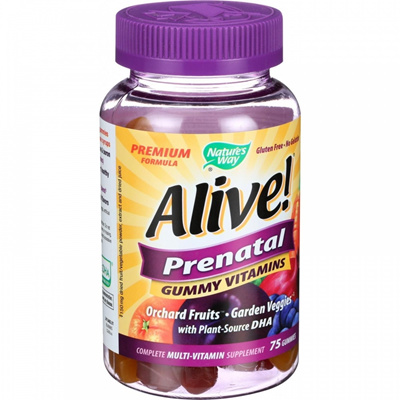 Anemia is not uncommon in pregnancy and will show up in the initial blood draw in pregnancy most of the time. However, if you do not address anemia when pregnant, it can affect the baby’s iron levels as well and leave them anemic.
Anemia is not uncommon in pregnancy and will show up in the initial blood draw in pregnancy most of the time. However, if you do not address anemia when pregnant, it can affect the baby’s iron levels as well and leave them anemic.
For the third trimester specifically, you will want to be conscientious of the calcium and vitamin D in your prenatal vitamins. These two are especially important those last few months because that is when the baby’s bones and teeth are growing at an accelerated pace. In addition to taking those prenatal vitamins religiously, it’s important to maintain any fevers that you contract. Fevers have been shown to cause tooth bud decay among other dangers to baby. Keeping fevers at a safe temperature with doctor prescribed methods will help to keep baby safe.
Healthy brain development in the baby during pregnancy is an important factor to remember when choosing a prenatal vitamin. Omega-3 fatty acid supplements are the suggested nutrient to achieve good brain health.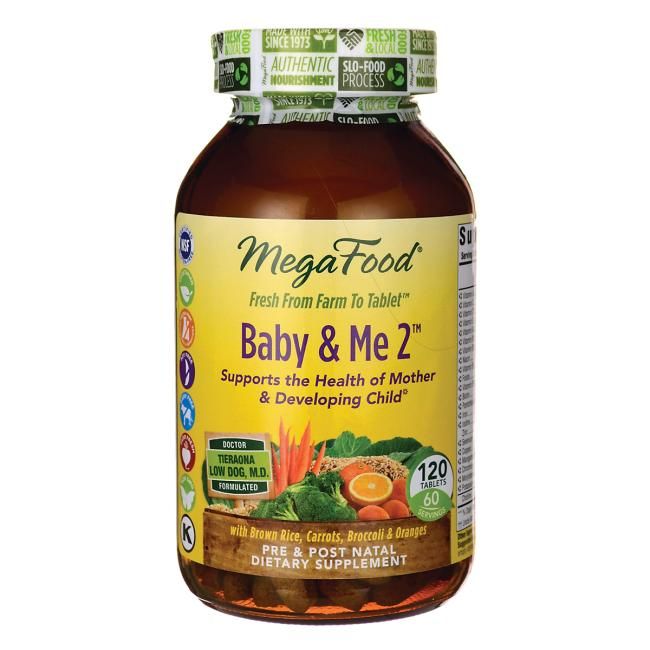 They are usually found in prenatal vitamins for easiest consumption. However, you may not need a high dosage in your vitamins if you are very conscious of your diet and include things such as fish, flaxseeds, Brussels sprouts and avocados frequently.
They are usually found in prenatal vitamins for easiest consumption. However, you may not need a high dosage in your vitamins if you are very conscious of your diet and include things such as fish, flaxseeds, Brussels sprouts and avocados frequently.
“If you’re vegan or allergic to fish, talk to your doctor about other ways to meet your DHA/Omega-3 fatty acid needs during pregnancy,” says our resident expert Jessica Cording, a registered dietitian and health coach. “For example, there are algae-based DHA supplements available.”
To keep the mother’s immune system in good fighting condition, prenatal vitamins are often loaded with Vitamin C, Vitamin A and Vitamin E, as well as zinc and copper, to help support the stressed immunity. In combination with the other supplements mentioned above, these vitamins can be absorbed into the body and greatly aid in a healthy baby and mother.
Now, you may be wondering when the best time is to start taking prenatal vitamins.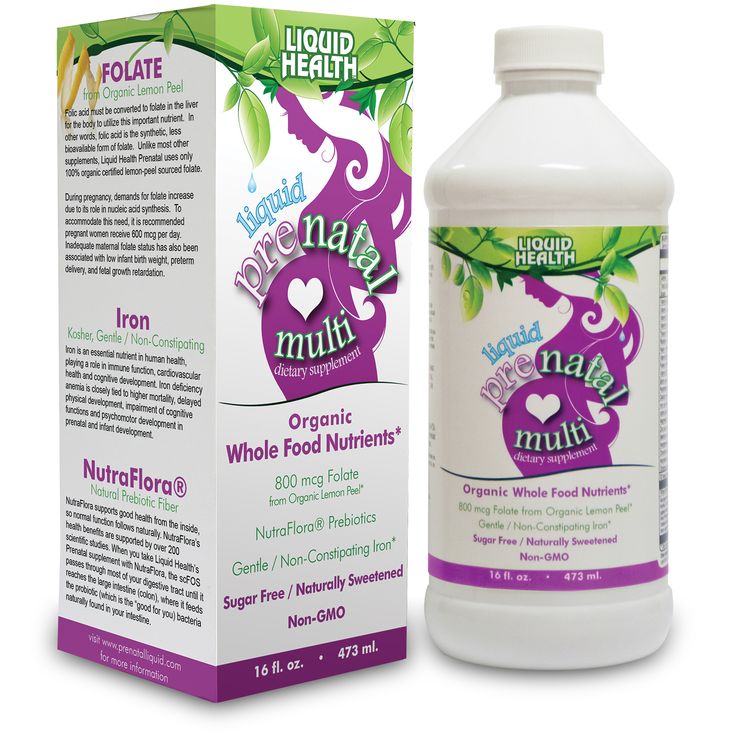 “The best time to start taking a prenatal vitamin is before you conceive. A lot of important fetal development occurs very early, before many women even know they’re pregnant,” says Cording. This is ideal because the very first things to develop in that first month are the neural tube, which includes the brain and the spinal cord.
“The best time to start taking a prenatal vitamin is before you conceive. A lot of important fetal development occurs very early, before many women even know they’re pregnant,” says Cording. This is ideal because the very first things to develop in that first month are the neural tube, which includes the brain and the spinal cord.
“If you haven’t started taking a prenatal vitamin by the time you find out you’re pregnant, don’t freak out — just start taking it,” adds Cording. “Some doctors may also recommend continuing to take the prenatal vitamin while you breastfeed to account for increased maternal nutrient needs during lactation.”
Sometimes you may find a few unfavorable side effects from the prenatal vitamins. In combination with fluctuating hormone levels and changes in nutrient necessities, prenatal vitamins may cause nausea. If you experience this, try taking them at different times throughout the day. Doctors also recommend trying a gummy prenatal vitamin. This may help with the side effect of nausea.
Another suggestion to avoid negative side effects from the vitamins is to choose one that has raw whole foods and enzymes or probiotics. Whole foods tend to be a bit gentler on the stomach, and the enzymes really aid in digestion throughout the entire GI tract.
In addition to side effects, you will want to find a once a day prenatal vitamin. Remembering to take vitamins three or four times a day is tough, especially since your brain can be a little foggy during pregnancy. Once-a-day vitamins also help if your prenatal vitamin doesn’t sit well with you. A slight stomach ache once a day is more manageable than repetitive nausea throughout the day when you have a multi-dosage prenatal vitamin.
As you enter into the adventure of motherhood, remember to keep yourself and baby healthy. Prenatal vitamins are a great way to give the baby the nutrients it needs while keeping your immune system in tip-top shape. Also, there is no wrong or right prenatal vitamin, so don’t be afraid to switch around if you feel negative side effects from one. Consult with your OBGYN to help find the right one for you.
Consult with your OBGYN to help find the right one for you.
We eat in childbirth! - articles from the specialists of the clinic "Mother and Child"
Artsybysheva Ludmila Romanovna
Obstetrician-gynecologist
Clinical hospital Lapino-1 "Mother and Child", Clinic KG "Lapino" in Odintsovo (branch)
yes or no
did not even arise, the doctors believed that with the onset of contractions, food and drink should be forgotten. This was explained by the fact that if suddenly, for some reason, an emergency caesarean section is required, then general anesthesia will be needed, and before this anesthesia, you can’t drink, let alone eat (during such anesthesia, food residues can be thrown from the stomach into the lungs) . The only thing allowed was a few sips of water. But now everything has changed: childbirth has ceased to be a medical event, but has moved into the category of natural processes, no one thinks about “you never know what will happen”. In addition, even if a caesarean section is needed, then it (even an emergency one) is done almost everywhere with the help of epidural anesthesia (and eating does not affect it). So now doctors are not so categorical in relation to food in childbirth and even believe that food and water will help a woman avoid dehydration and maintain strength for experiencing contractions. nine0003
In addition, even if a caesarean section is needed, then it (even an emergency one) is done almost everywhere with the help of epidural anesthesia (and eating does not affect it). So now doctors are not so categorical in relation to food in childbirth and even believe that food and water will help a woman avoid dehydration and maintain strength for experiencing contractions. nine0003
Therefore, if the birth is going well and you suddenly want to eat, then a light snack is allowed. Well, if you don’t even want to think about food, you don’t need to force yourself. In general, everything should be as desired.
when there is
Very often, on the day of childbirth, a woman notices that she does not feel like eating at all, at most - she would eat something light and simple. The same is possible with the onset of contractions: the body is not up to the digestive processes now, so there will be no strong appetite during childbirth. But, nevertheless, you don’t need to go to give birth on an empty stomach either, it will take strength in childbirth, and we take energy for them just from food.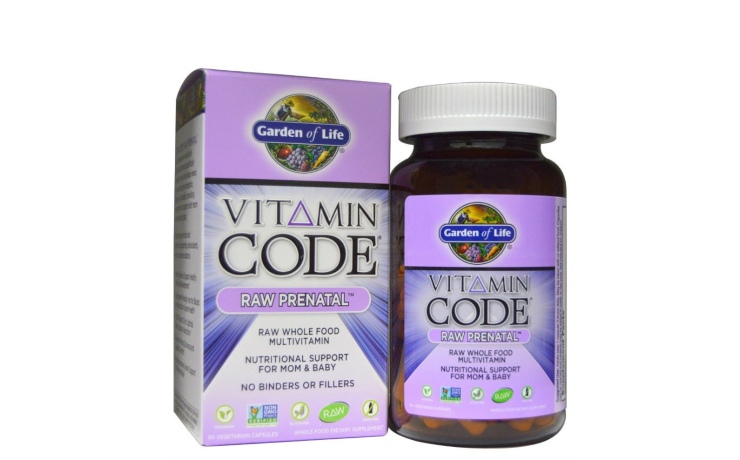 Therefore, with the onset of contractions, doctors recommend a woman to have a light snack - this is the best time to eat. Firstly, when the contractions are still weak and rare, you can eat without being distracted by painful sensations. Secondly, there is still a lot of time before the height of labor and the food has time to be digested, and this is important, because often during strong contractions, the woman in labor experiences nausea. Thirdly, at the beginning of labor, a woman is usually at home, where, of course, there is food, then there will simply be no place to take it in the rodblok. nine0003
Therefore, with the onset of contractions, doctors recommend a woman to have a light snack - this is the best time to eat. Firstly, when the contractions are still weak and rare, you can eat without being distracted by painful sensations. Secondly, there is still a lot of time before the height of labor and the food has time to be digested, and this is important, because often during strong contractions, the woman in labor experiences nausea. Thirdly, at the beginning of labor, a woman is usually at home, where, of course, there is food, then there will simply be no place to take it in the rodblok. nine0003
what to eat
Which dish or product to choose? There are no special prohibitions for food, and you can focus on your wishes, but still it is worth considering that fatty foods are out of place now: it is also heavy for the stomach, and nausea in labor can increase. The same can be said about protein: it does not provide energy and is hard and slow to digest. It is best to eat something from carbohydrates - they are just digested easily and, most importantly, provide the necessary energy.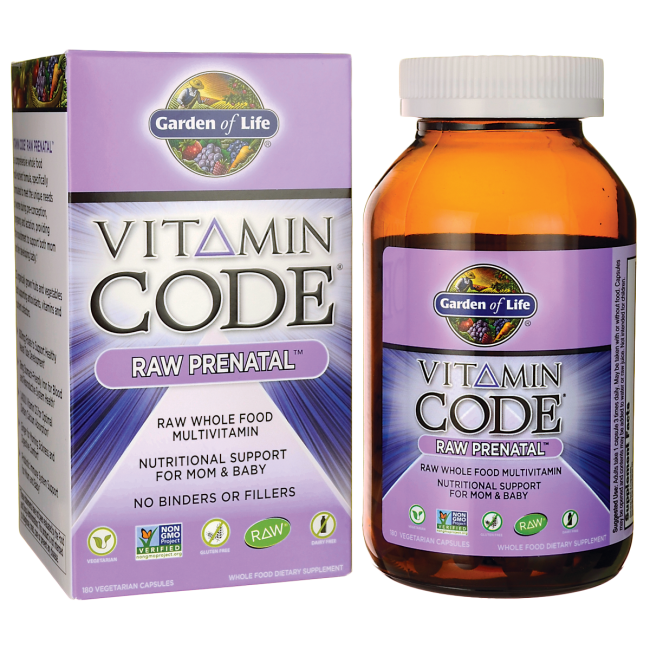 For example, banana, crispbread, toast, cereal, crackers, fruit puree, broth, soup, or yogurt will do. nine0003
For example, banana, crispbread, toast, cereal, crackers, fruit puree, broth, soup, or yogurt will do. nine0003
what to drink
Contractions are physical work, they are like running a long distance, so during childbirth there is almost always thirst. Another reason why women in labor are thirsty is that it is often too warm or even hot in the birthing room, and the air in it is very dry. So drinking during childbirth is not only possible, but necessary. What is the best choice? Plain water, clarified juice and weak tea will do. Soda, especially sweet, should not be drunk: gas and sugar can irritate the stomach and provoke or increase nausea. You need to drink little by little, but often (sometimes even the usual amount of liquid also causes vomiting). nine0003
caesarean section
As we have already said, now almost everywhere a planned caesarean section is done under epidural anesthesia, and then eating and drinking is not prohibited. But if the operation is done under general anesthesia, then there will be restrictions on food intake.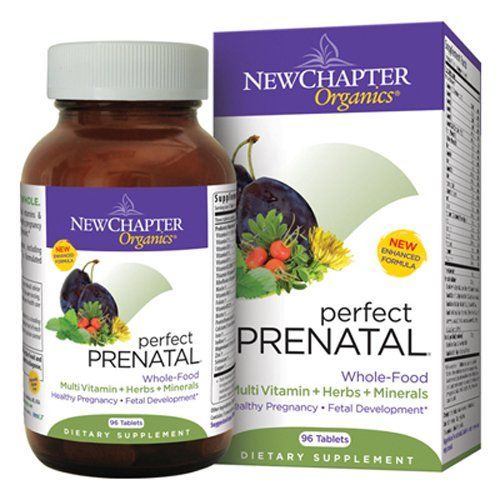 The last time you will be allowed to eat somewhere 8-12 hours before the operation. Since a planned caesarean section is usually performed in the morning, it turns out that the last meal is dinner. It should be light - the same bread, toast, yogurt, broth will do. Meat (even low-fat), cheeses, nuts, fatty cottage cheese - in general, it is better not to eat all foods that take a long time to digest. Also, do not eat a lot of fiber (vegetables and fruits) - it can affect bowel function. nine0003
The last time you will be allowed to eat somewhere 8-12 hours before the operation. Since a planned caesarean section is usually performed in the morning, it turns out that the last meal is dinner. It should be light - the same bread, toast, yogurt, broth will do. Meat (even low-fat), cheeses, nuts, fatty cottage cheese - in general, it is better not to eat all foods that take a long time to digest. Also, do not eat a lot of fiber (vegetables and fruits) - it can affect bowel function. nine0003
If you suddenly need general anesthesia during childbirth, and the woman has recently eaten, you should definitely tell the anesthesiologist about this. The doctor will more closely monitor that, under anesthesia, the contents of the stomach do not enter the respiratory tract.
some nuances
– Today, you can take water with you to childbirth in almost all maternity hospitals. Better if it is in a plastic bottle.
– Can I take some food with me to the hospital? Everything here will depend on the rules of the hospital. Usually, it is not allowed to bring food directly into the maternity unit itself, and this is understandable: a woman is already in it during active contractions, when she is not at all up to eating. But there are exceptions, somewhere they are allowed to bring the same toast, bread, chocolate to the rodblok. In any case, you can put some non-perishable products in the bag for the maternity hospital: what if the birth is delayed, or the baby will be born late in the evening, when dinner is already over, and breakfast is still far away? This is where you can have a bite to eat. nine0003
Usually, it is not allowed to bring food directly into the maternity unit itself, and this is understandable: a woman is already in it during active contractions, when she is not at all up to eating. But there are exceptions, somewhere they are allowed to bring the same toast, bread, chocolate to the rodblok. In any case, you can put some non-perishable products in the bag for the maternity hospital: what if the birth is delayed, or the baby will be born late in the evening, when dinner is already over, and breakfast is still far away? This is where you can have a bite to eat. nine0003
– If a partner (husband, sister, girlfriend) is present at the birth, then in a few hours he will also want to eat. Therefore, something to eat will have to be taken for him.
Ask the midwife or doctor who will be attending the delivery about food and drink. Or just call the maternity hospital and find out what food you can take with you. Then it will be easier for you to prepare and reschedule the birth.
Make an appointment
to the doctor - Artsybysheva Lyudmila Romanovna
Clinical Hospital Lapino-1 "Mother and Child" Clinic KG "Lapino" in Odintsovo (branch)
Pregnancy
By clicking on the send button, I consent to the processing of personal data
What are the procedures before childbirth?
Boryak Ksenia Borisovna
Emergency doctor
Clinical hospital "AVICENNA" GC "Mother and Child"
The contractions began, and the expectant mother arrives at the maternity hospital. But before the woman is in the delivery box, she will spend some more time in the emergency department of the maternity hospital. And it is there that she will be given some standard preparatory procedures. Let's talk about them in more detail. nine0054
doctor's examination
As soon as the woman in labor crosses the threshold of the admission department, she will immediately be referred to the obstetrician-gynecologist on duty.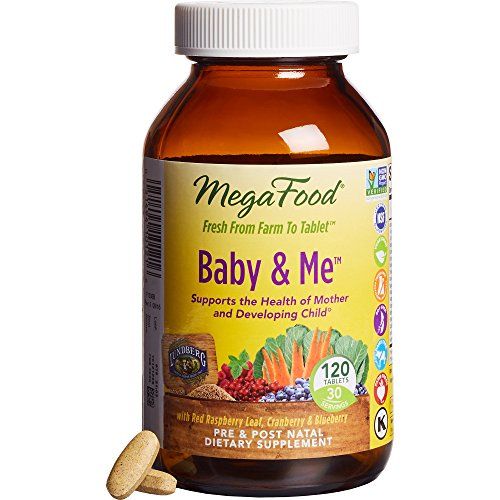 First, the doctor will ask the expectant mother about contractions, ask when they started, how often they repeat and how strong they are. In parallel, the doctor will examine the exchange card, ask a few questions about how the pregnancy went, find out if the woman has any diseases, allergic reactions. After that, the obstetrician-gynecologist will conduct a vaginal examination. It is necessary in order to determine how much the cervix has opened, and to understand whether labor has really begun. The doctor will assess the height of the baby's head and its position, listen to the fetal heartbeat, and assess the strength of the contractions. The doctor or midwife will then measure the mother's weight, pressure, and pelvic dimensions. If the opening of the cervix indicates that the process is underway, that is, childbirth has begun, the doctor will refer the woman to the maternity ward. In other cases, the expectant mother will be allowed to return home or will be advised to go to the pregnancy pathology department.
First, the doctor will ask the expectant mother about contractions, ask when they started, how often they repeat and how strong they are. In parallel, the doctor will examine the exchange card, ask a few questions about how the pregnancy went, find out if the woman has any diseases, allergic reactions. After that, the obstetrician-gynecologist will conduct a vaginal examination. It is necessary in order to determine how much the cervix has opened, and to understand whether labor has really begun. The doctor will assess the height of the baby's head and its position, listen to the fetal heartbeat, and assess the strength of the contractions. The doctor or midwife will then measure the mother's weight, pressure, and pelvic dimensions. If the opening of the cervix indicates that the process is underway, that is, childbirth has begun, the doctor will refer the woman to the maternity ward. In other cases, the expectant mother will be allowed to return home or will be advised to go to the pregnancy pathology department. nine0003
nine0003
paperwork
If the labor activity goes on as usual, there is nothing urgent and the woman is left in the maternity hospital, then after the examination the midwife of the admission department will begin to draw up the documents. The expectant mother must present a passport, an exchange card, an insurance policy and a birth certificate. The midwife will fill in the “history of childbirth” and enter into it all the data from the exchange card. While a woman is in the hospital, the birth history will be her main document. It will record all the tests and examinations performed here, information about how the birth went and data about the newborn. nine0003
personal belongings
After the paperwork is completed, the woman in labor will need to change. The expectant mother will either return her clothes to those accompanying her (husband, relatives), or hand over to the storage room. Instead, they will give you a government nightgown and a dressing gown. Slippers will also be given out, although it is more convenient to take your own to the maternity block, it is much more comfortable to move around the maternity hospital in them (especially since you are allowed to take your own slippers in all maternity hospitals). The main thing is that shoes should be rubber or any other washable material. There is no need to be afraid of government items - they will all be clean and disinfected, in addition, they can always be changed as needed. nine0003
You can also take some personal items with you to the maternity unit, each specific maternity hospital has its own list of such things. Usually everywhere you are allowed to take water and a phone, in addition, in many maternity hospitals you can take wet wipes, a tablet, a player, an icon, a needle massager to the maternity block. Somewhere, even for childbirth, they are allowed to change into their personal belongings (robe, shirt), but you need to know about this in advance.
intimate procedure
In the emergency department of the maternity hospital, a woman in labor may be asked to remove hair in the intimate area. And if a woman does not want, then she can refuse this procedure. Previously, in Russia, all pregnant women had to shave their pubic and perineal hair before giving birth. It was believed that the hair in these places collect various bacteria, which is not at all necessary during childbirth, especially for a child. Now many doctors claim that these fears are too exaggerated, and they are allowed not to remove hair in an intimate place. To prevent infection, instead of shaving, the perineum is treated with an antiseptic. nine0003
On the other hand, hair removal has its advantages. If the vegetation in an intimate place is abundant, then it is more difficult for the midwife to control the change in the color of the perineum during childbirth, and this is an important point. Sometimes when the baby's head erupts, the skin of the perineum is too stretched and it can break. Before tearing, the skin becomes very pale, and by seeing this, perineal tears can be prevented and an episiotomy can be done. In addition, it is much more convenient to sew up ruptures of the external genital organs and an incision after an episiotomy if there is no hair in an intimate place. So if doctors in the maternity hospital recommend removing vegetation on the genitals, you should heed their advice. Someone removes hair in advance at home (shaving or epilating). Well, if it is difficult for a pregnant woman (a large belly closes the view), then the midwife of the emergency department will remove the hair (with a disposable machine). nine0003
cleansing procedure
Another not-so-pleasant procedure that can also be offered in the emergency department is a cleansing enema. Previously, it, like shaving the perineum, was also performed for all women in labor, it was believed that the cleansed intestines ensured normal labor activity, from contractions to direct attempts and the birth of a baby. In addition, during attempts, spontaneous discharge of feces is possible, and after an enema this will no longer be the case. Today, you can also refuse enemas. Firstly, very often before childbirth, the mother’s stool becomes more frequent and the intestines become empty. Secondly, if during the attempts the feces still go away, the midwife will immediately lay a clean diaper and clean everything up. Although still, most women prefer to do an enema and give birth in comfort, without worrying about various "surprises". nine0003
final moment
If a woman gives birth with a partner (husband, sister, girlfriend, personal midwife, psychologist), he must show the results of the tests necessary for joint birth. Then he is taken to a special room where you can change clothes. In some maternity hospitals, partners are offered medical suits, in others they are allowed to take their own clothes for childbirth (they must be made of cotton). And of course, the partner needs to take with him a change of shoes and some personal items (phone, water, a light snack). The list of allowed things must be known in advance.

